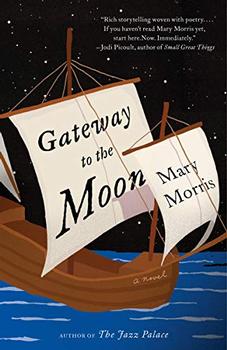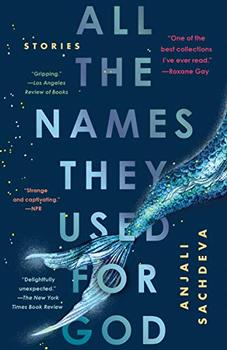Summary | Excerpt | Reading Guide | Reviews | Beyond the book | Read-Alikes | Genres & Themes | Author Bio

From award-winning novelist Mary Morris comes the remarkable story of a remote New Mexican town coming to grips with a dark history it never imagined.
In 1492, the Jewish and Muslim populations of Spain were expelled, and Columbus set sail for America. Luis de Torres, a Spanish Jew, accompanies Columbus as his interpreter. His journey is only the beginning of a long migration, across many generations. Over the centuries, de Torres' descendants travel from Spain and Portugal to Mexico, finally settling in the hills of New Mexico. Five hundred years later, it is in these same hills that Miguel Torres, a young amateur astronomer, finds himself trying to understand the mystery that surrounds him and the town he grew up in.
Entrada de la Luna is a place that holds a profound secret - one that its residents cannot even imagine. It is also a place that ambitious children, such as Miguel, try to leave. Poor health, broken marriages, and poverty are the norm. Luck is unusual. When Miguel sees a flyer for a babysitting job, he jumps at the opportunity, and begins work for a Jewish family new to the area. Rachel Rothstein is not the sort of parent Miguel expected. A frustrated artist, Rachel moved her family from New York in search of a fresh start, but so far New Mexico has not solved any of the problems she brought with her. Miguel loves the work, yet he is surprised to find many of the Rothstein family's customs similar to ones he's grown up with and never understood.
Interwoven throughout the present-day narrative are the powerful stories of the ancestors of Entrada's residents, highlighting the torture, pursuit, and resistance of the Jewish people. A beautiful novel of shared history, Gateway to the Moon is a moving and memorable portrait of a family and its journey through the centuries.
Gateway to the Moon connects modern lives to distant ancestors, seamlessly navigating between centuries while addressing universal questions about our need to connect to our past while moving to the future. This novel reaches beyond history; it explores the humanity infused into everyday life, whether in 1492 or 1992...continued
Full Review
(609 words)
This review is available to non-members for a limited time. For full access,
become a member today.
(Reviewed by Emily Isackson).
The Spanish Inquisition ultimately affects modern-day characters in Gateway to the Moon. The inquisitorial system (derived from the Latin word inquisitio "to inquire"), is one in which the court actively investigates a case rather than simply being an impartial referee--in short, the court acts as detective, prosecutor and judge. Throughout medieval times, the papacy gave bishops across Europe inquisitorial power to extend the enforcement of Catholicism.
In medieval Spain, the flourishing Jewish population was seen with increasing animosity by its Christian counterparts. When, in the middle of the 14th century, a plague known as The Black Death wiped out nearly half the population of Europe, but notably fewer of the Jewish population, ...
This "beyond the book" feature is available to non-members for a limited time. Join today for full access.

If you liked Gateway to the Moon, try these:

by Sarah Perry
Published 2025
A dazzling new work of literary fiction from the author of The Essex Serpent, a story of love and astronomy told over the course of twenty years through the lives of two improbable best friends.

All the Names They Used for God
by Anjali Sachdeva
Published 2019
For fans of Dave Eggers and Kelly Link, an exhilarating collection of stories that explores the mysterious, often dangerous forces that shape our lives - from censorship and terrorism to technology and online dating.